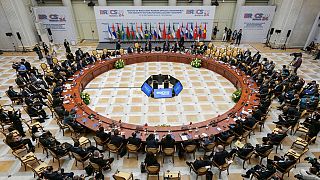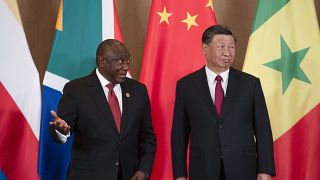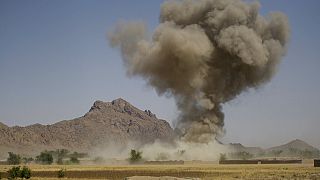Benin
A China-backed pipeline that would make Niger an oil-exporting country is being threatened by an internal security crisis and a diplomatic dispute with neighoring Benin, both as a result of last year’s coup that toppled the West African nation’s democratic government.
The 1,930-kilometer (1,200-mile) pipeline runs from Niger’s Chinese-built Agadem oil field to the port of Cotonou in Benin. It was designed to help the oil-rich but landlocked Niger achieve an almost fivefold increase in oil production through a $400 million deal signed in April with China’s state-run national petroleum company.
But it has been stalled by several challenges, including the diplomatic disagreement with Benin that led to the pipeline’s closure last week. There also has been an attack this week by the local Patriotic Liberation Front rebel group, which claimed to have disabled a part of the pipeline and is threatening more attacks if the $400 million deal with China isn't canceled.
To find a solution, the Niger junta is considering routing the oil through neighboring Chad and Cameroon. This option, as well as that of Nigeria, had already been considered at the start of the project, before the elected Nigerien authorities opted for the pipeline to Benin.
According to Seidik Abba, researcher and president of the International Centre for Studies and Reflections on the Sahel (CIRES), the Chad option is not a simple one, and it's not certain that the Chinese will reinvest.
“The Chad option is not a simple solution, as it involves building a new (oil) pipeline. We need to find an investor. Will the Chinese, who have already invested in the pipeline to Benin, invest again in the pipeline to Chad? I don't think all these questions have been answered yet. (The Chad pipeline) is a possible option, but it raises many challenges. It's not an easy option to implement”, he said.
One major concern is how the stalled pipeline operation might impact Niger’s overall economic growth. The World Bank had projected that the West African nation’s economy would rebound and grow the fastest in Africa this year at a rate of 6.9%, with oil exports as a key boost.
The diplomatic tensions with Benin date back to July when Niger’s president, Mohamed Bazoum, was deposed in a coup, resulting in West African neighbors closing their borders with Niger, and in the formation of the so-called local liberation group now threatening more attacks on the oil project.
Both countries are losing out economically, with Benin also being deprived of millions of dollars in transit fees.













Go to video
France: Beninese activist Kemi Seba freed
01:06
Iranian FM, Egyptian officials hold talks on regional tensions in Cairo
00:44
Gasoline tanker explosion in Nigeria kills over 140, injures dozens
Go to video
DRC cancels auction of 27 oil blocks
01:04
Nigeria's fuel price challenge: second increase in one month
Go to video
Libya resumes full oil production